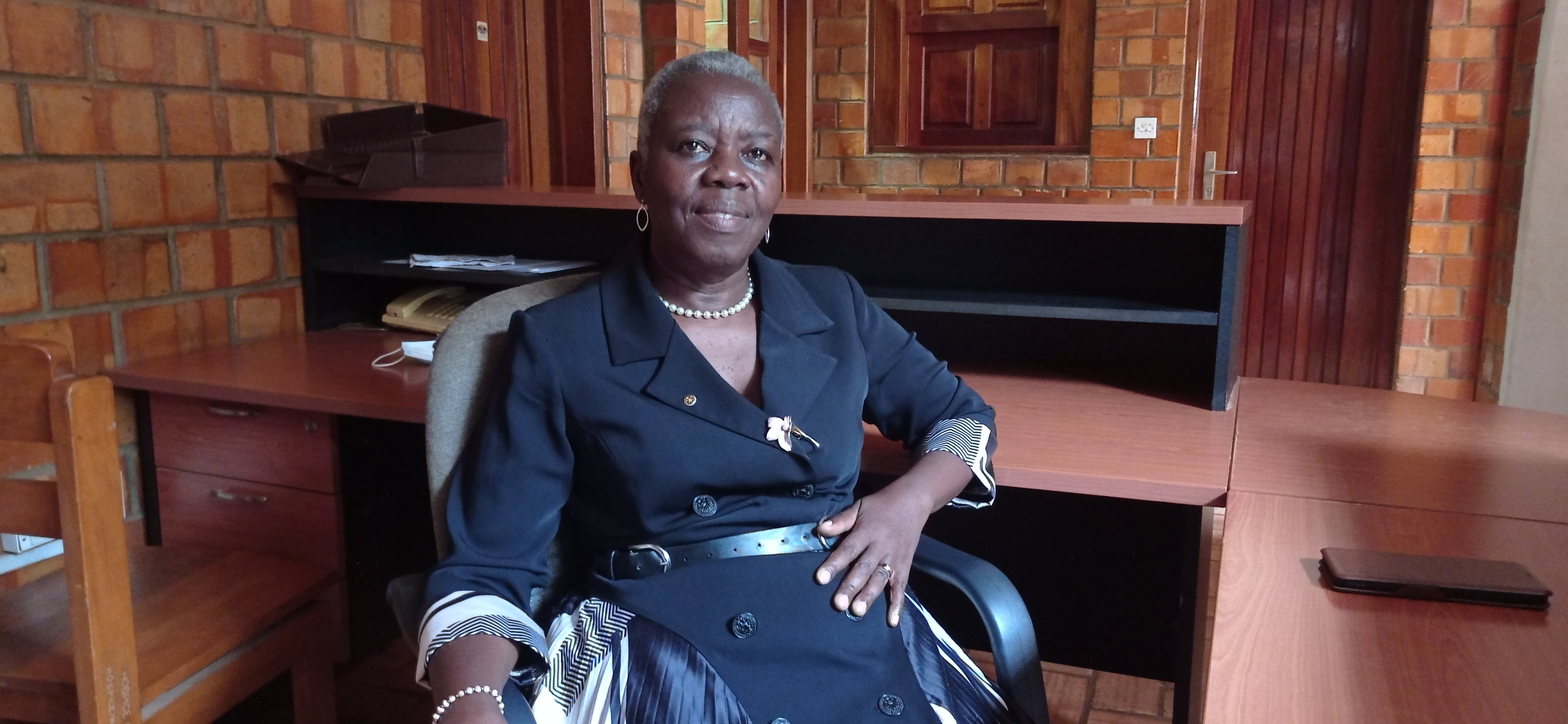Prime
Kiwanuka’s 30 years as a palliative care provider

Kiwanuka wants patients to die with dignity. Photo/Esther Bridget Nakalya
What you need to know:
- Rose Kiwanuka, is a palliative care nurse in Uganda with experience spanning 30 years. She sits on the board of Hospice Africa.
- Her dream is to see more patients who are battling chronic illnesses die with dignity. She has visited different countries to gain knowledge on palliative care.
Have you ever thought about death?” Rose Kiwanuka, 63, was asked this question by her lecturer during the induction of her course in palliative care at Oxford University in 1995.
The question, she says, took an emotional toll on her. Her thoughts raced back home. She reminisces, “I thought about my child- a special needs child and I broke down.”
Her brain pondered and panic rushed through her nerves as she thought to herself, “If I died today, who would take care of my child?”
Those were the questions that kept her grounded. She knew she had taken on a right career path.
Rose Kiwanuka, is the first palliative care nurse in Uganda with experience spanning 30 years. She also sits on the board of Hospice Africa.
Pallative care, she explains focuses on, “treating a patient as a whole and not just pain,” a concept that was not well known in the country at the time and she was ridiculed by friends and family for enrolling for that course.
“My friends told me I was committing career suicide because the drugs that were administered to patients to ease their pain such as morphine, were known to be hazardous to her health,” she narrates.
Her father, she adds, “did not understand why I was leaving a reputable hospital to start on something different.”
In the 30 years, 30 stories book, she shares her contribution demystifying pallative care.
Why palliative care?
Kiwanuka had her first encounter with nursing at the age of eight. “I was diagnosed with measles at Hoima hospital. I saw nurses dressed in beautiful uniforms.”
The colour pink initially drew her admiration, but also the pushing of trollies around the wards to administering prescribed medication to patients made her fall in love with nursing. In primary four, she was voted a health prefect.
At home, her mother, who she says was a traditional birth attendant, inspired her to care for people in the community.
Hardwork
After sitting Senior Four examinations, Kiwanuka applied for nursing, a decision her father was not comfortable with since he wanted her to join A-Level.
In the nursing school, her misconceptions about nursing were addressed. “In the first three months of the course there was actually serious reading,” she shares.
Kiwanuka’s first experience in the ward was scary.
She was left in the screen ward alone to observe an ailing patient. She was counselled and encouraged to keep on with even more horrifying duties such as “last offices which involved making a dead body smart for viewers.”
Mentorship
As a budding nurse, caring for patients on a ward that specialised on gynaecology and surgical cases, Kiwanuka met her mentor Dr Anne Merriman, who was particular about pain management.
On one encounter she recalls the doctor asking a patient who was in severe pain to chew a tablet and within 10 minutes the pain was gone.
After administering prescribed tablets to the patient by the clock, Dr Merriman would sit and ask the patient to talk about the nature of their pain and this changed Kiwanuka’s nursing approach.
Sticking to the book, spending so much time with a patient was not acceptable except when one is dressing wounds.
Passion
“Giving back hope to someone on their deathbed is a noble thing. When you take away the pain, patients are able to talk freely. If the patient is not eating, they can eat,” Kiwanuka expresses.
Kiwanuka intentionally exposed herself to situations and environments that shaped her nursing career.
She has visited different countries to get more knowledge and expose herself to experiences on palliative care such USA, the Netherlands and UK . It is this experience that equipped her to head Hospice Education department, which is now the Institute of Hospice and Palliative care in Africa (Ihpa).
She shares, “palliative care is now recognised and well entrenched in health care and education systems in Uganda.”
She also wants to see more patients who are battling life-threatening illnesses die with dignity.
Lessons
In 2017, Kiwanuka was diagnosed with cancer of the colon. Stepping in the shoes of a patient, she experienced all the five stages of grief: freezing, denial, anger, bargaining, and acceptance.
She says, “I became a better pallative care provider, advocate and teacher.”
As a patient, she was not strong enough to undergo the six circles of chemotherapy after four cycles.
“Book knowledge is not always applicable. It is a lived experience, the books do not say some of the things the patient is going through,” she says.
She also tips healthcare providers to listen to their patients concerns because the experiences are individual and each one faces it differently.
Support
To build a successful career, Kiwanuka recognises a support system right from her immediate family does all the magic. She says her husband Phenehance Muskie has been a strong pillar in her career decisions.
“Given my busy work and travelling, I had little time for my family. I am thankful that my husband would support me by taking care of the little ones. Kiwanuka cautions women not to be carried away by work at the expense of family. The couple has three children.
Challenges
She says while some patients are comfortable with pain management services, their family sometimes opt for traditional healers.
Kiwanuka advises caretakers and the family to respect the patient’s wishes.
“We engage and bring families to an agreement because most patients usually regret how they mishandled relationships. The challenge has been getting to know a patient, they improve and suddenly, they are gone which gives us pain,” she says.
In comforting the family, she is able to hold herself together but also hints on the work provisions that help her navigate such times.
“We usually go through case conferences where we debrief and encourage each other.” This kind of support at her workplace keeps her going regardless of the situation.
Impact
In 2019, Kiwanuka found more purpose to serve her community. As a retired nurse, she was still bringing cancer awareness campaigns in Lweza Zone B through a community based organization, known as Lweza Community Health Programme.
She partners with different health organisations such as Uganda Heart Institute, Uganda Cancer Institute, Mengo Eye clinic, Dental School and Audiology department,ENT to carry out free screening in medical health camps for her community.
“ The health camps have benefited more than 2,000 people in a camp that registered cases of tuberculosis, cancer of cervix, breast, prostate, high blood pressure, sickle cell among others,” she records.
Extension of services
According to Kiwanuka, the palliative care association has extended the practice to 97 districts in Uganda.
She says, the services are offered by government in referral hospitals and government hires professionals to offer this service. She has served as nurse at Nsambya Hospital, Hospice Africa and as the first executive director at Palliative Care Association of Uganda.
Kiwanuka went to Nsambya nursing school for a certificate and diploma in nursing.
She went to Oxford University for palliative care in 1995. Later joined Aghkhan University to pursue a bachelor degree in Nursing.
She has made contributions to filming that spotlights experiences in palliative care in a series called “Okuyamba” and to books such as, “ When I die, let me be the last,” and “30 years, 30 experiences.
Background
Rose Kiwanuka went to Nsambya Nursing School for a certificate and diploma in Nursing.
She went to Oxford University for palliative care in 1995. She later joined Aghakan University to pursue a degree in Nursing. She has made contributions to a film that highlighhts experiences in palliative care in a series called Okuyamba and to books such as When I die, Let Me Be The Last, and 30 years, 30 stories





